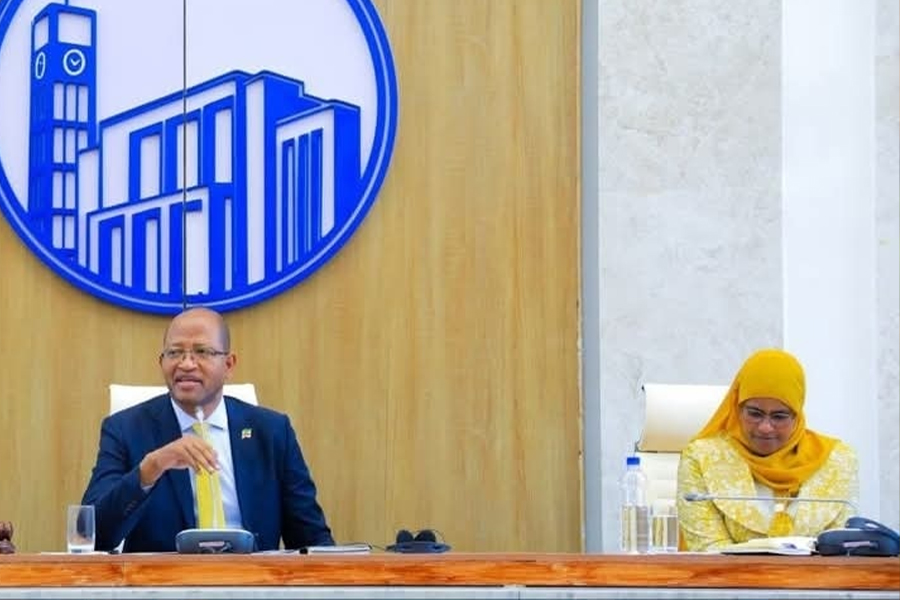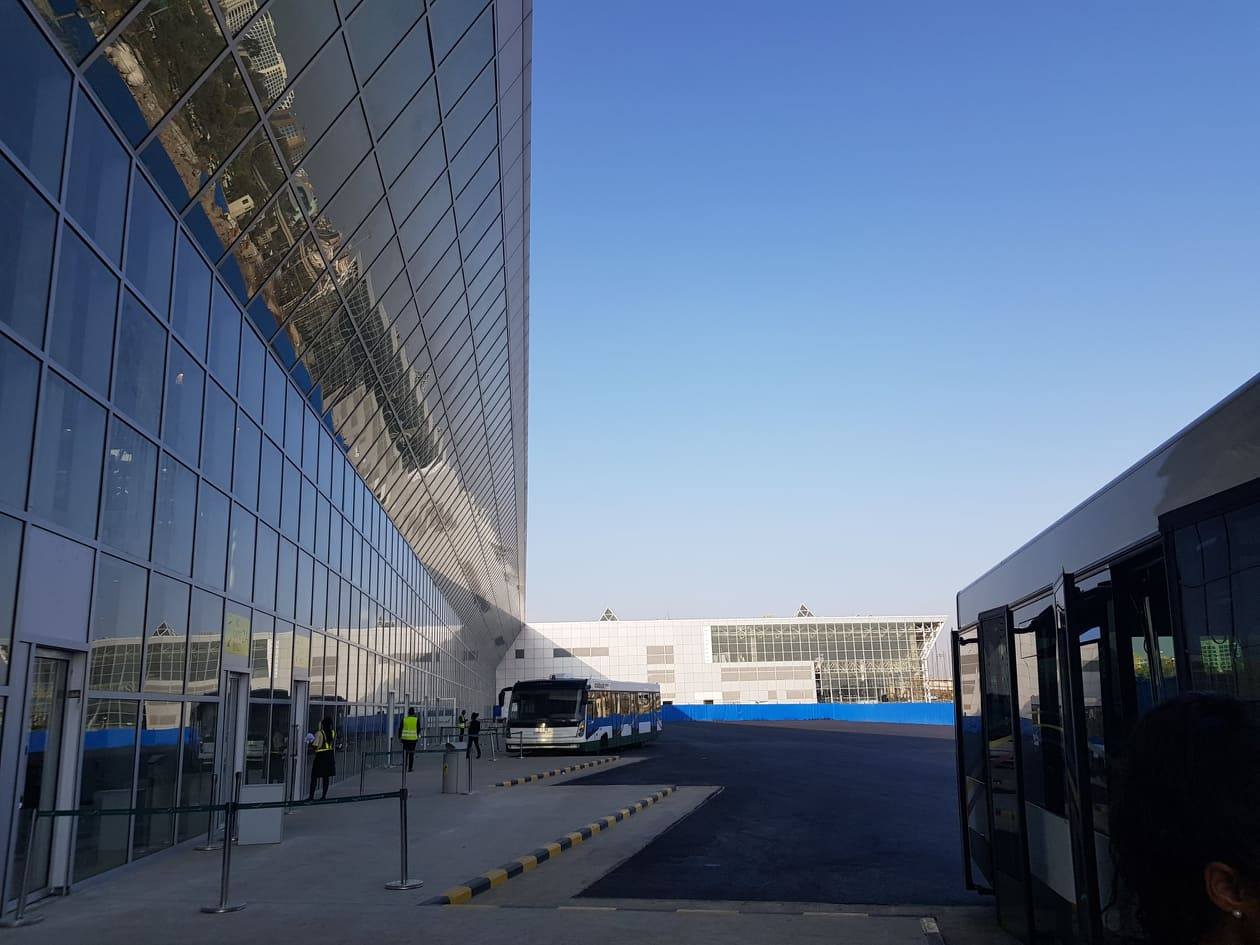
Commentaries | Aug 29,2020
Jan 9 , 2021
By Asseged G. Medhin
Eliyahu Goldratt, an Israeli businessman, wrote in "The Goal" that bottlenecks determine the overall output of a system. It was the theory of weak links and how they determine the pace of the company.
Unless this weak link is addressed, it would nearly be impossible to stop innovations from being subverted. It means that the appetite to innovate and create something would always play second fiddle to the core businesses.
Fortunately, there is a way that this rigid system can be broken and the weak link can be eliminated through an innovation – necessity. Sometimes, companies or even whole industries would be faced with such a challenge; they have no choice but to change to develop new ways of doing business.
For businesses today, the Novel Coronavirus (COVID-19) pandemic has provided that opportunity. It has upended almost every type of company, forced nearly everyone to deliver services and products differently. Nearly nothing but COVID-19 took the leading share among business risk and insurance perils.
The magnitude of the catastrophe that was wrought by the pandemic could not leave companies a gram of power to resist the urge to give it up and ignore the inner voices to move.
The economy has been locked down for more than 10 months in most parts of the world. Ever since this millennium began, 2020 has been the rockiest that has been witnessed since the 2008 financial crisis. It is perhaps the most catastrophic economic challenge since the Great Depression, though the rate of recovery is likely to be much faster this time.
Now all eyes are on 2021. It should be a year of reflection and new beginnings. It should be a period for addressing the economic downturns that were brought about by 2020. Most importantly, it should be a year for capitalising on the urgency of innovation that was emphasised as a global pandemic disrupted the world economy. This requires imagination.
“The waking have own world in common. Sleepers each have a private world of their own,” said Heraclitus, the Greek philosopher.
Indeed, those who dream big, take risks and see long-term would have weathered such disruptions. In many cases, what the COVID-19 interruption required was the need to transition to digital. But the "waking" waited for the business tsunami, all they could do to stay the course is hope and pray that it could end soon.
An excellent example was the Ethiopian banking industry’s push in digitalisation and core banking. It was always seen as a highly disruptive new business model. The new model blended new technology, user-centric design principles, and process innovation to strengthen the bond between bankers and clients.
Researchers identified the risk of running into several of the bank’s bottlenecks, including obtaining funding, deploying the technology, training employees, and pushing through regulatory approval. In the end, more and more companies warmed up to it in the 21st century. This included Ethiopian banks. Now that COVID-19 has come and entrenched the importance of having digital services, it seems unthinkable to doubt the significance of this transition.
In the Ethiopian financial sector, most firms preceded to give adequate dividends to their shareholders. They owe a lot of their success to digitisation that allowed clients to interact with their bankers and insurers as much as possible.
Beyond COVID-19, Ethiopia has also faced floods, locust outbreaks and political unrest. These are all challenges that businesses have to work around. They are a call to the urgency to innovate for the mega risks we all hope we can avoid but are seemingly unavoidable in such a fast-changing world.
Business leaders whose performance is marked highly in the learning curve of business after COVID-19 and disruptive technology are those that accepted the risk as an opportunity. Their strategy is to focus on the challenge and hunt for the narrowest bottlenecks as they attempt to address the scaling-up problem.
They would create teams, empower them, do a risk analysis and build a network of external helpers to recognise the next big opportunity or challenge. Pondering COVID-19 after the fact will not help achieve a breakthrough.
PUBLISHED ON
Jan 09,2021 [ VOL
21 , NO
1080]


Commentaries | Aug 29,2020

Viewpoints | Jan 01,2022

News Analysis | Sep 01,2024

News Analysis | Mar 09,2024

Viewpoints | Apr 04,2020

Fortune News | Jul 06,2025

Radar | Apr 27,2025

Addis Fortune | May 03,2024

Radar | Dec 05,2018

Verbatim | Apr 30,2021

My Opinion | 132038 Views | Aug 14,2021

My Opinion | 128435 Views | Aug 21,2021

My Opinion | 126362 Views | Sep 10,2021

My Opinion | 123981 Views | Aug 07,2021





Dec 22 , 2024 . By TIZITA SHEWAFERAW
Charged with transforming colossal state-owned enterprises into modern and competitiv...

Aug 18 , 2024 . By AKSAH ITALO
Although predictable Yonas Zerihun's job in the ride-hailing service is not immune to...

Jul 28 , 2024 . By TIZITA SHEWAFERAW
Unhabitual, perhaps too many, Samuel Gebreyohannes, 38, used to occasionally enjoy a couple of beers at breakfast. However, he recently swit...

Jul 13 , 2024 . By AKSAH ITALO
Investors who rely on tractors, trucks, and field vehicles for commuting, transporting commodities, and f...

Jul 12 , 2025
Political leaders and their policy advisors often promise great leaps forward, yet th...

Jul 5 , 2025
Six years ago, Ethiopia was the darling of international liberal commentators. A year...

Jun 28 , 2025
Meseret Damtie, the assertive auditor general, has never been shy about naming names...

Jun 21 , 2025
A well-worn adage says, “Budget is not destiny, but it is direction.” Examining t...

Jul 13 , 2025 . By YITBAREK GETACHEW
The Addis Abeba City Revenue Bureau has introduced a new directive set to reshape how...

Jul 13 , 2025 . By BEZAWIT HULUAGER
Addis Abeba has approved a record 350 billion Br budget for the 2025/26 fiscal year,...

Jul 13 , 2025 . By RUTH BERHANU
The Addis Abeba Revenue Bureau has scrapped a value-added tax (VAT) on unprocessed ve...

Jul 13 , 2025 . By NAHOM AYELE
Federal lawmakers have finally brought closure to a protracted and contentious tax de...